Samsung's success in selling the world's leading volumes of phones through intense, expensive marketing efforts appears to be supporting Android as a platform, but Samsung's internal documents show it has plotted for years to compete against Google with its own mobile OS.
"Highly Confidential" Samsung documents that have surfaced this week during the Apple vs Samsung trial detail that in September 2011, Samsung identified three primary enemies to its future goals.
The first, Apple, was described as "aggressively growing share," leaving Samsung to note that "future success is dependent on blunting Apple."
This harmonizes with the "Beat Apple" memo where Samsung called the "threat from Apple extremely real and urgent," concluding that "Beating Apple is #1 Priority" and that "everything must be context of beating Apple."
Android competitors in the "Carrier Friendly, Good Enough" market
Samsung's second target was HTC, ostensibly a "partner" that shared Samsung's collective Android market share in the reports filed by various marketing groups. Samsung described HTC as a "key challenge."
The document noted "HTC operating at a high level," specifically "launching new technology first on all 4 carriers," delivering "consistent product and software upgrades, consistent look and feel" with "aggressive pricing" that undercut Samsung's own devices.
Rather than seeing other Android makers as part of a collective family or alliance, Samsung saw HTC, once the world's leading Windows Phone maker then a pioneering adopter of Android, as a competitor to stop.
But instead of targeting HTC at a high level and competing through innovation, Samsung aimed at beating HTC "at their own game," specifically in delivering cheap, low end devices Samsung referred to as "carrier friendly good enough" phones.
Enemy Me
The third enemy Samsung identified was itself. "Samsung has experienced significant product delays" the company observed, referencing "over 1 million expected S/P sell-thru lost in both 2Q and 3Q," and "almost 70 S/P sell-thru weeks already lost in 4Q."
A supporting document from February 2012 (below) detailed "significant lost sales due to late product launch and poor quality," noting "30+ delayed launches in 2011."
Samsung also worried that it was "not winning the 'Last Three Feet' of retail," where retailers and carriers were recommending products to customers. Samsung noted that 71 percent of AT&T recommendations were for Apple, while Samsung only got 18 percent.
Despite spending lots of money on advertising, Samsung observed that its "Galaxy brand [is] too weak to create sufficient 'pull' and sustain S-P sales," and complained of "insufficient sales and brand ROI achieved with channel-dominant marketing spend."
Why Google's Android Update Alliance failed
Another problem Samsung identified for itself was its chronic inability to deliver major Android software updates or even regular Maintenance Releases. This was complicated by Samsung's broad product range.
"Too many MRs required due to post launch issued found," Samsung fretted in a February 2011. "Some MRs are to address broken MRs," the company observed, making a "goal to reduce MRs required in 2012."
Samsung also referenced Google's Android Update Alliance, a "Google IO commitment" it and other Android licensees made in 2011 to deliver regular software updates for new phones for at least 18 months in response to growing criticism. Samsung was distracted with nearly forty software update releases across a broad range of products just within 2012, while Apple could focus on just one set of iOS updates for a very limited number of devices
It turned out that none of them could keep their promise. By the end of 2012, Ars Technica observed that Google's Android Update Alliance program "resulted in exactly zero improvements to update timeliness."
Samsung essentially described why the program was doomed to fail, stating months earlier, "it is expected that each product will require 1 or 2 OS updates over 18 months after launch."
Essentially, Samsung was distracted with nearly forty software update releases across a broad range of products just within 2012, while Apple could focus on just one set of iOS updates for a very limited number of devices: a total of two iOS 5 updates and two iOS 6 updates within 2012, beyond the major release of iOS 6.
That same year, Google released two patches for its Android 3.0 Honeycomb tablet platform and six updates to three different API versions of its Android 4.x. Samsung was also tasked with delivering old 2011 updates related to the Android 2.x products it was still shipping.
Samsung was finding it harder to keep up with Google's Android updates than Motorola or HTC, lagging updates to Froyo by nearly a year and continuing to remain behind with Gingerbread. Samsung continues to ship Android phones with outdated, vulnerable versions of Android today. In fact, such low end, "carrier friendly good enough" models like the Galaxy Y make up the majority of Samsung phone volumes.
Apple's ability to rapidly coax its users and developers to update to its latest version of the platform (iOS 7 has reached 87 percent deployment in just six months) has resulted in a better experience for iPhone and iPad users, a healthier rich ecosystem, and afforded the iPhone maker the luxury of ignoring outdated legacy issues, allowing it to nimbly outmaneuver the market.
Samsung eyes competing with Google
Cognizant of that, Samsung also identified a fourth competitor. In late 2011, Samsung had already set its sights on challenging Google in an effort to establish "The 3RD Platform."
Samsung noted that, while "this won't be easy," it believed it could "influence a 3rd mobile OS platform viability and scale by driving volume aggressively," noting that "what matters most in adoption" was "market penetration."
"Market share drives ecosystem scale," Samsung charted, correlating smartphone platform market share with "number of apps added to app store."
At the time Samsung was working on Bada, a Linux project that has since been folded into the ashes of a similar project between Intel and Nokia, resulting in Tizen. Samsung has already employed Tizen as the mobile OS in a watch project, and has demonstrated phones running Tizen as a functional alternative to Android.
With its smartphones running Tizen, Samsung wouldn't have to share its ecosystem with HTC, making it easier to compete against it and other former comrades formerly affiliated under Google's Android banner.
But Samsung's document also shows other reasons why the company wanted to distance itself from Android, including greater "OS flexibility." The only thing Samsung's own Bada was lacking was "maturity." In every other respect, Samsung outlined that it would be equally easy to implement compared to Google's Android.
Samsung also depicted the viability of Microsoft's Windows Phone and webOS, but concluded that Microsoft's platform offered "poor or restrictive" issues related to OS, UI and hardware features, while webOS was only "fair" across the board.
If Samsung can successfully replace Android with its own Tizen as its executives have since publicly outlined as a goal, it would leave Google tied to a series of hardware partners that are collectively losing lots of money. That explains why Google attempted to establish Motorola Mobility as an Android hardware maker under its own control, at least until it became obvious that the strategy wasn't working.
 Daniel Eran Dilger
Daniel Eran Dilger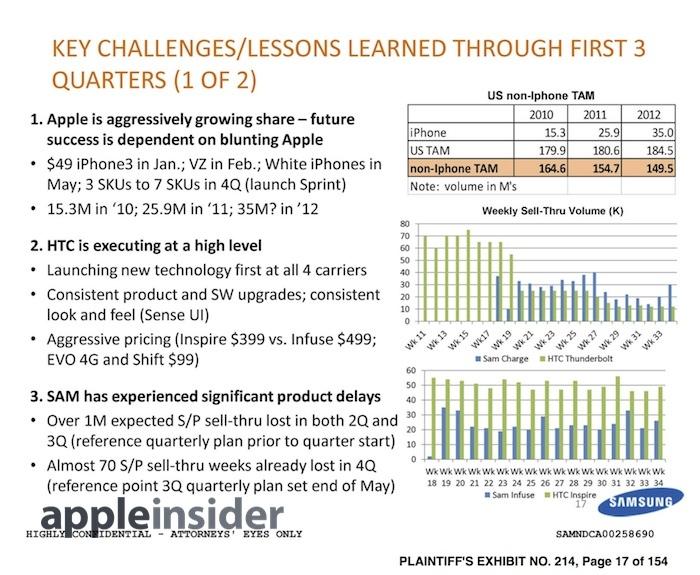
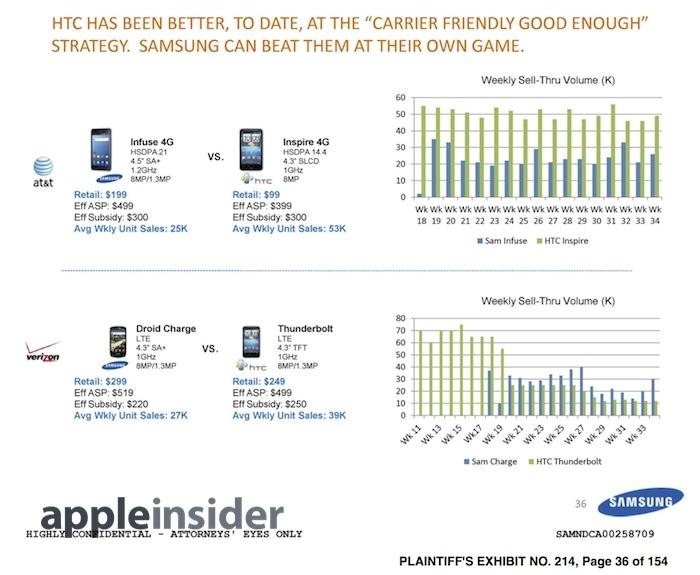
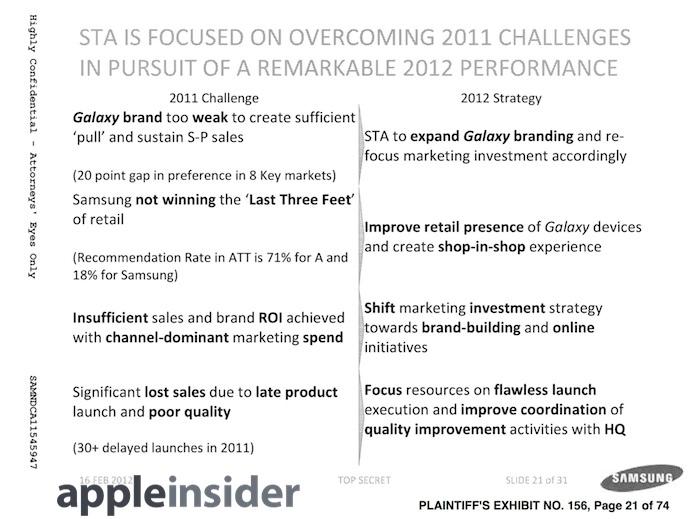
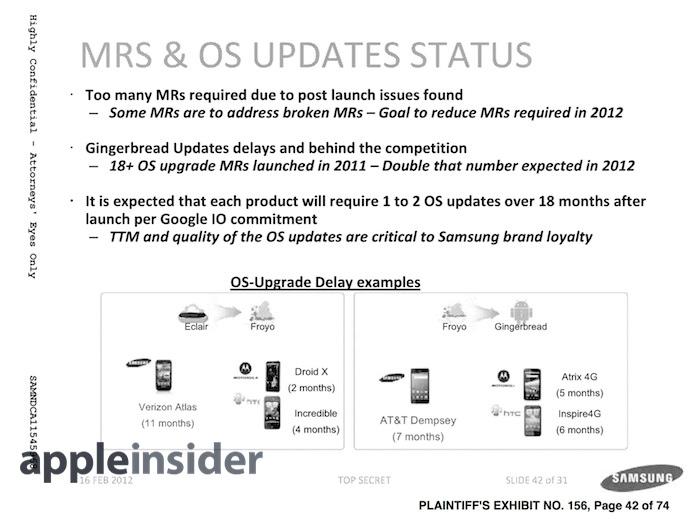
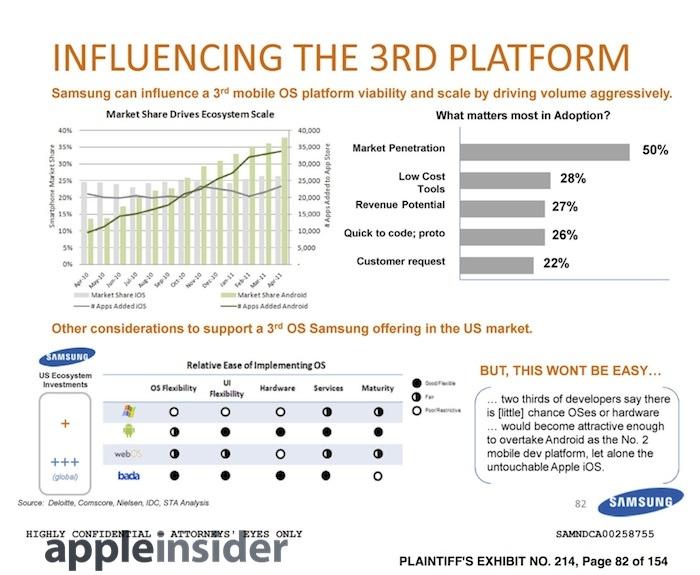
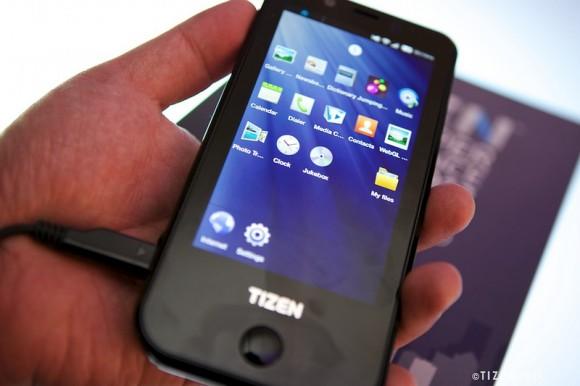







-m.jpg)






 Wesley Hilliard
Wesley Hilliard
 Malcolm Owen
Malcolm Owen
 Andrew Orr
Andrew Orr
 William Gallagher
William Gallagher
 Sponsored Content
Sponsored Content
 Christine McKee
Christine McKee

 Thomas Sibilly
Thomas Sibilly
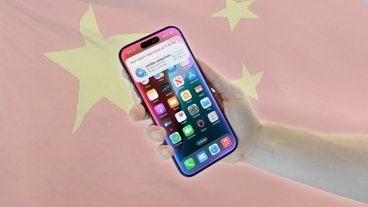
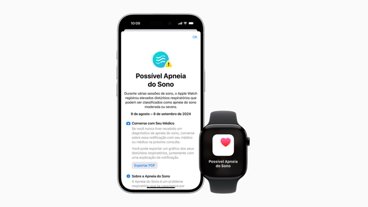





114 Comments
What is this, SamsungInsider.com? :no:
The samsung newsletter are trash
I've been saying this since day one. Samsung is just blowing smoke at Fandroids long enough to ride them like the town mules they so they can put out their own ecosystem and jettison Android when the first opportunity comes. Fandroids were just lame tools that Samsung was so obviously using.
It's an efficient plan. With Samsung being Android's largest partner, Android will wilt and die a long-needed death as the botched iClone experiment it was once Samsung goes to TizenOS.
The even better part is that since Samsung absolutely sucks at anything in hardware, and especially software, their mobile business will pretty much implode shortly afterwards.
It's all going right on schedule. Fandroids are beginning to look like deers staring at headlights, and they deserve to be!
[quote name="sflocal" url="/t/178200/exclusive-samsungs-big-bet-on-android-actually-a-covert-strategy-to-replace-android#post_2514925"]I've been saying this since day one. Samsung is just blowing smoke at Fandroids long enough to ride them like the town mules they so they can put out their own ecosystem and jettison Android when the first opportunity comes. Fandroids were just lame tools that Samsung was so obviously using. It's an efficient plan. With Samsung being Android's largest partner, Android will wilt and die a long-needed death as the botched iClone experiment it was once Samsung goes to TizenOS. The even better part is that since Samsung absolutely sucks at anything in hardware, and especially software, their mobile business will pretty much implode shortly afterwards. It's all going right on schedule. Fandroids are beginning to look like deers staring at headlights, and they deserve to be! [/quote] Let's just hope Samsung doesn't realize that all those Galaxy Y barely smart phones won't count worth a hill of beans when it comes to attracting developers to their own OS offering. I, like you, would love to watch Samsung go down this desperate and disastrous path to ruin. Not that they have a choice.
[quote name="Rogifan" url="/t/178200/exclusive-samsungs-big-bet-on-android-actually-a-covert-strategy-to-replace-android#post_2514911"]What is this, SamsungInsider.com? :no:[/quote] [INDENT]What is this, clichéInsider.com [color=white]. . . .[/color]-or- 2008 called, they want their trite phrase back. :D [/INDENT] Seriously though, since when has AppleInsider [I]not[/I] posted about a competitor that could directly affect Apple? Besides that, there is no other forum I would want to discuss this and other topics so I welcome it being presented hear as opposed to Engadget, The Verge, Cnet or other [I]lesser[/I] forums.